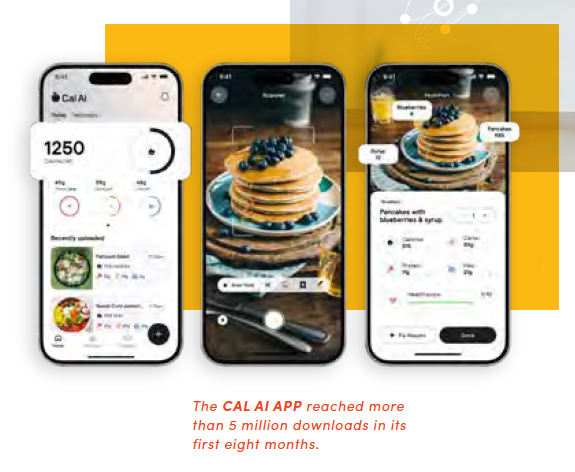Personalized health, fitness and wellness recommendations without the guesswork.
Listen to this story starting at 14:20 on the new, revamped The DSN Podcast. Even when your day is packed, we make it easy to stay informed, engaged and one step ahead. Listen now or read below!
Personalization is the new benchmark in health, fitness and wellness, and AI-powered diagnostics are pushing it further into the mainstream. It’s a future where guesswork vanishes and customers know precisely what their bodies need.
According to Fortune Business Insights, the personalized nutrition market was valued at $11.88 billion in 2023 and is projected to hit $46.87 billion by 2032 at a 16.6 percent Compound Annual Growth Rate (CAGR), showing an accelerating shift. The Cal AI app, which was created by two teenagers in 2024, helps users track calories and nutrition info just by snapping a picture of their meal. It reached more than 5 million downloads in its first eight months.
Custom Solutions with a Personal Touch
Soon, customer blood tests—paired with data from their wearable tech—could flag a vitamin D deficiency. AI can dig deeper, factoring in their age, vegan diet and active lifestyle, recommending 1,200 IU (International Units) of D3 daily.
This redefined customization meets customers where they are with science-backed clarity. Sweden-based direct selling company Zinzino has been implementing a test-based, personalized nutrition approach for years. It all starts with a blood test to determine someone’s Omega-3 and Omega-6 balance. From there, more customized solutions are explored.
Instead of a generic pitch, it’s a precise solution drawn from thousands of data points—blood markers, sleep quality, activity levels—all processed in real time. Distributors can present a supplement that fits perfectly, tailored to the individual’s unique needs.

The revenue upside is undeniable. Research firm McKinsey & Company found that personalization and tailored offerings lift retention by 10-15 percent, a critical edge for getting customers on recurring orders. Imagine a monthly subscription pack that shifts from B12 for a busy parent to collagen for a fitness enthusiast, adapting as health data evolves. The broader dietary supplements market, including personalized options, is on track to reach $258.75 billion by 2029, growing at 7.6 percent annually. AI sharpens this potential, turning individualized insights into higher sales and lasting customer trust.
Room to Grow

Scale makes it even more powerful. AI platforms already in use are expanding to process vast datasets from wearable metrics, at-home tests and lifestyle inputs. For example, a 20-year-old runner gets iron support; a 50-year-old with poor sleep gets magnesium. McKinsey notes personalization cuts inefficiencies by up to 20 percent, letting distributors focus on selling rather than guessing. As the technology learns, it anticipates needs before customers do, delivering proactive wellness solutions. This isn’t just an upgrade. It’s a leap toward precision at every metric.
Forrester predicts 70 percent of health-conscious consumers will expect tailored solutions by 2030. Pair this with direct selling’s natural personal approach, and the industry could be in a terrific spot to dominate. AI apps might display real-time nutrient gaps, and virtual sessions can offer recommendations that adjust on the fly. In this near-future, distributors leverage tools that go beyond marketing, offering wellness plans as unique as the customers themselves.
AI diagnostics are creating a market where customers no longer settle for one-size-fits-all. They want solutions shaped by their lifestyle, diet, activity level, age and other evolving metrics. With blood tests, wearables and smarter algorithms, the industry is delivering exactly that. This is health, fitness and wellness without guesswork—a personalized revolution that’s already here and only getting stronger.
From the July/August 2025 issue of Direct Selling News magazine.
The post AI Diagnostics first appeared on Direct Selling News.







